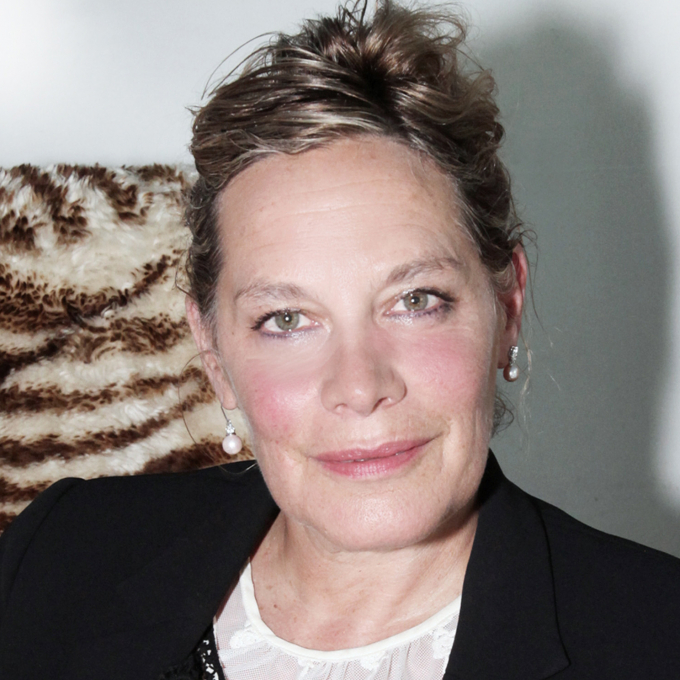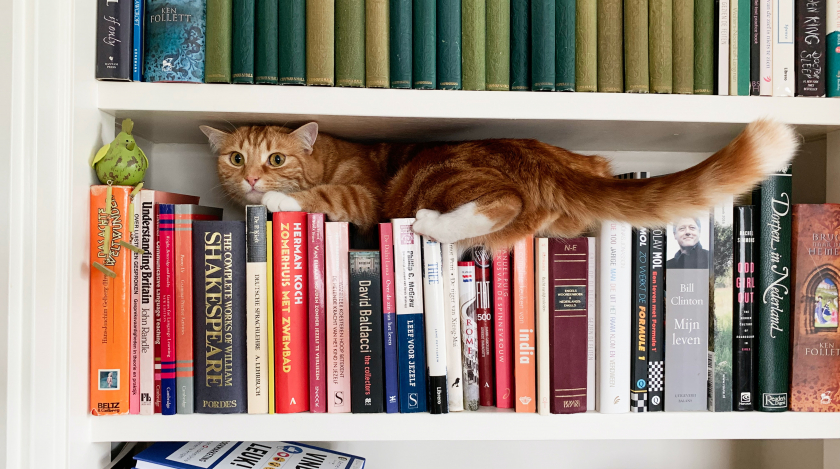
Biography
Playwright, novelist and poet Deborah Levy (Fellow Royal Society of Literature) was born in 1959 in South Africa. She moved to Britain with her family and studied theatre at Dartington College of Arts. She was a Creative Arts Fellow at Trinity College, Cambridge, between 1989 and 1991.
She is a regular contributor of articles and reviews to newspapers and magazines including The Independent, The Guardian and the New Statesman. Formerly director and writer for MANACT Theatre Company, Cardiff, Deborah Levy's plays include Pax (1984); Heresies:Eva and Moses (1985), written for the Royal Shakespeare Company; Clam (1985); The B File (1993); and Honey Baby (1995). She is also the author of a libretto adapted from Federico Garcia Lorca's play Blood Wedding. A collection of her plays, Plays: 1 was published in 2000.
She is also the author of three collections of short stories: Ophelia and the Great Idea (1989); Pillow Talk in Europe And Other Places (2004); and Black Vodka (2013). The latter was shortlisted for the International Frank O’Connor Award.
An Amorous Discourse in the Suburbs of Hell, a collection of poems, was published in 1990, and she wrote the screenplay for a short film Suburban Psycho, televised by the BBC in 1998. Levy also adapted Carol Shield's novel, Unless, and Chance Acquaintances by Colette, for BBC Radio 4.
Deborah Levy is also the author of seven novels: Beautiful Mutants (1989); Swallowing Geography (1993); The Unloved (1994); Diary of a Steak (1997); Billy & Girl (1999); Swimming Home (2011); and Hot Milk (2016). She has been shortlisted twice for the Booker Prize, in 2012 and 2016.
Levy’s autobiographical essay on writing, Things I Don't Want to Know, a response to the essay of the same title by George Orwell, was published by Notting Hill Editions in 2013 and in paperback by Penguin in 2014. She has more recently written a sequel, The Cost of Living (2018).
Critical perspective
The first thing to note about Levy is that she has written across many genres. She found early success as a playwright; her Heresies: Eva and Moses (1987) was performed by the Royal Shakespeare Company and acclaimed by Marina Warner, among others. Praise by Warner - one of Britain's leading literary writers - indicates the seriousness with which her work is viewed. Her plays were republished in 2000, showing that interest in them remains significant.
The bold imagery of Levy's plays, and a gift for voice, turns her major work of poetry, An Amorous Discourse in the Suburbs of Hell (1990), into a tour-de-force. This work strains deliberately against generic expectations as it is not strictly speaking a poem: it is simply a dialogue between a modern Everyman of suburban banality, and a female and very streetwise angel who has descended from above to offer him passion and escape. Having its structural roots in medieval poetic dialogues, or even Dante, the tone is however contemporary, bathetic and very funny.
The angel - simply called 'she' - has the following opening lines:
''s'cuse me
while i sneeze
into my snotty
skunk cuff''
Clearly, like Angela Carter, Levy wants to demythologise. This angel is earthly and earthy, talks in slang and is unangelic in her behaviour from the outset. The fact that the angel is just referred to as 'she' means that she too is an Everywoman, or what a contemporary woman can or could be: angry, powerful, and transcendent, and far more interesting than 'he', who lives in a 'semi', is an accountant, wants simply 'Beer and a good stew/A little garden'. 'He' has a rubber plant and was born in Hurstpierpoint; she is mysterious, undefined, 'a migrant/with no name/a displaced woman/angel'. The man will clearly never measure up to her; she departs with the words, that might sum up one of
Levy's central themes:
'that is the theatre
of the living and the furious
the task
to keep on becoming
more of a human being'
Energy, fury, performance, and the expansion of the self, then, are what drives Levy's writing. It is therefore appropriate that simply being a playwright, or becoming a poet, would not contain her vision; she has stated that a liking for one form or another 'changes over the years. Some times one form suits a cultural and psychological enquiry better than another. ' Levy is asking questions, then, as she writes. This goes with her experimental approach, although the writer does feel that the label 'experimental' ' is often used to mock very skilled writers and to slyly assert they are not quite up to the job.' These words reveal a useful distance between Levy and convention.
Deborah Levy published her first collection of short stories, Ophelia and the Great Idea, in 1989. The same year saw her first novel, Beautiful Mutants, appear to excellent reviews. Her interest in narrative, which of course can be shown in the novel better than in any other form, is best illustrated in the writer's own words:
'I am invited to work with writing students from all over the world and it is clear to me that when we begin, in any number of languages, what we all want to know is how one thing connects to another. This is sometimes called narrative and we are all very excited to figure out how we are going to find a shape for our conflicts, anxieties, histories and passions.'
It is appropriate that the shape she chose for her debut novel, and the next fiction, Swallowing Geography (1993) is fragmentary; Levy is postmodern in her worldview. We shift rapidly between points of view and the narrative is dislocated, never promising truth or traditional linear progression. The characters themselves are rootless: Lapinski, whose story opens the novel, is Russian migrant eking out a living among the London underclasses, yet her imagination, and that of the other characters, is magical and fantastic. In her mind she can remember that - the novel's first lines - her 'mother was the ice-skating champion of Moscow. She danced, glided, whirled ...', even when 'it is difficult to make a map in splintered times when whole worlds and histories collide'. This sense of fractured identity in a fractured world, mirrored by fractured plots, is summarised by Levy in Swallowing Geography: ' it is possible that classic rules of form and structure do not fit this experience of existing and not existing at the same time.'
Levy has written many other works which cannot be included here, such as The Unloved (1994), which renders what is at the outset an Agatha Christie- style story with extreme violence, and profundity in its musing on the human condition. Not surprisingly, her work has been admired by Michele Roberts and Jeanette Winterson. Levy's work might belong to that school of artistry, but is highly individual. Politically, she is ' proud of the way I have walked women into the centre of my fictions and plays and let them be as mysterious as they are'; artistically she has clear aims, and her words sum up her goals:
'The reason we keep writing is because there is always something we want to do better. Every one of my books is a conversation with the next one. Everything has to be entertaining. Totally one hundred percent on side with the reader. And then folded in to that premise my overall aim is to get as close to the turbulence that deep thought about any thing always creates.'
Dr Nick Turner, 2011
